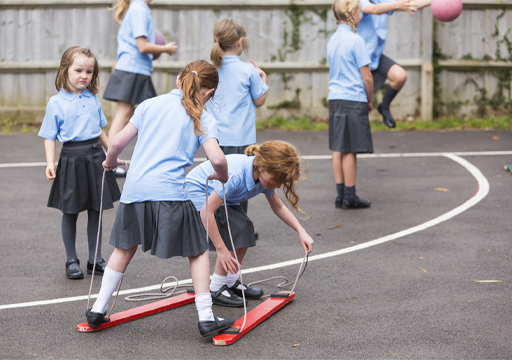5 The importance of play and creativity in promoting children’s wellbeing
In Session 4, you considered the importance of children’s rights. One of those rights is the right to play.
Article 31 of the United Nations Convention on the Rights of the Child (UNCRC) states that all children (from birth) have the right to ‘rest and leisure, to engage in play and recreational activities appropriate to the age of the child and to participate freely in cultural life and the arts’ (UNICEF, 1989, p. 10).
The right for children to be able to play has influenced many of the early years curricula that you have looked at earlier in this session.
While early years curricula focus on play as a vehicle for children’s learning, the importance of play and creativity in primary education is sometimes not regarded as being as important. However, it is essential that all children have opportunities to engage with different types of play and that they have creative opportunities.

